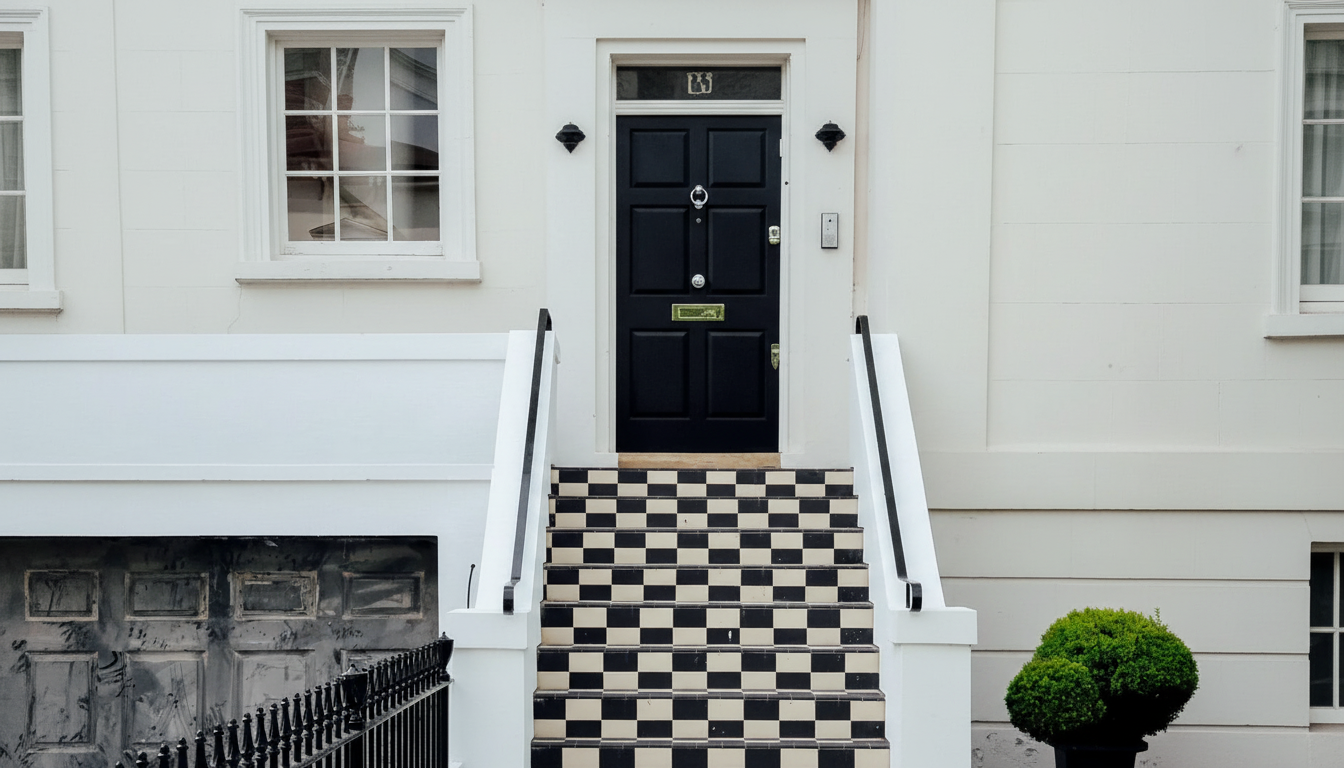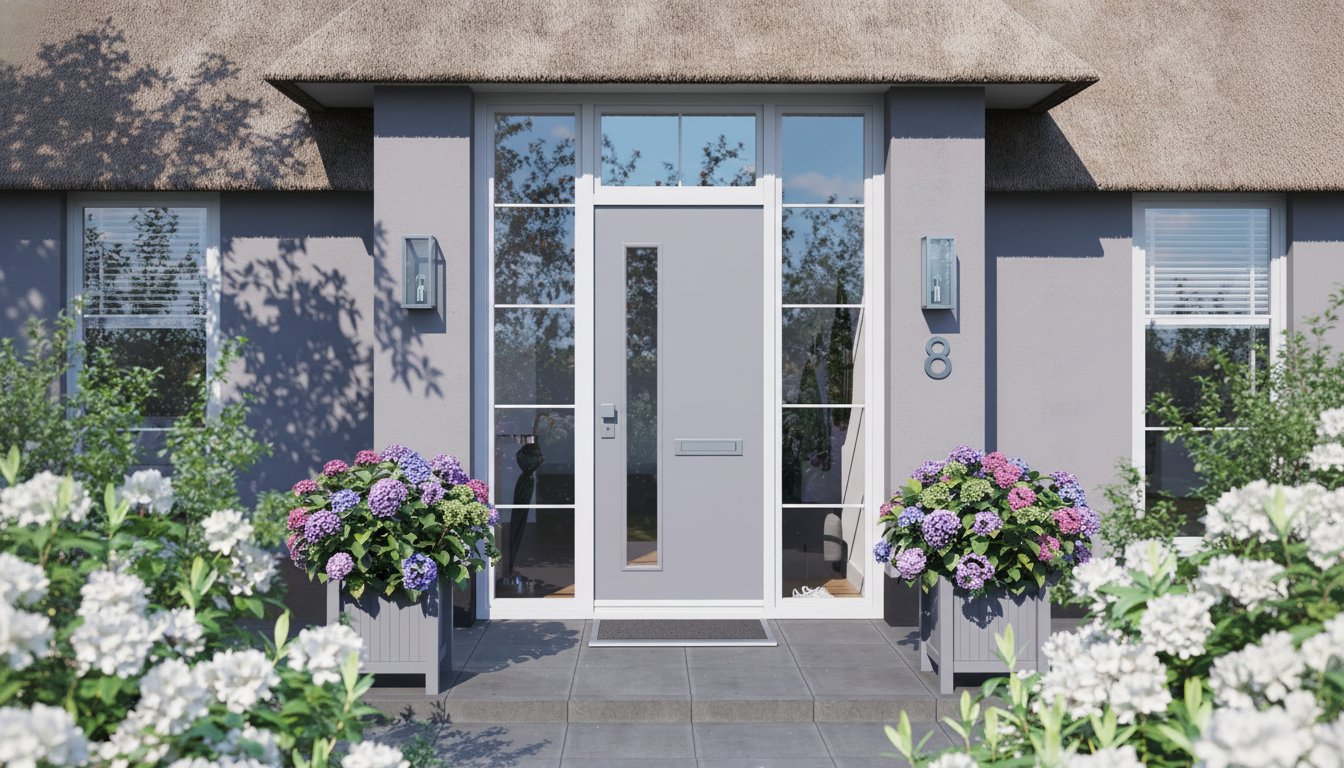Doorstep, a startup that is solving the relatively overlooked problem of how to deliver meals into buildings from the outside, without getting lost or breaking something — especially for people in apartments — has raised an $8 million seed round led by Canaan Partners. The company’s software plugs into the delivery apps on the market today and taps drivers’ smartphones to create a precise indoor compass that can give platforms clear evidence of where their courier went after GPS reception drops in lobbies, elevators and hallways.
By converting phone sensor signals into trustworthy traces, Doorstep hopes to automate dispute resolution, reduce refund expenses and reintroduce trust between customers, couriers and platforms. The team says that it does not collect driver or customer identities, matching the privacy standards already employed by big delivery networks.

How Doorstep Fixes The Indoor GPS Blind Spot
GPS is great outdoors; not so good indoors. High-rise canyons, cores of concrete and elevator shafts are all capable of distorting or blocking signals to the point that “delivered” pins become irrelevant. Doorstep fills that gap by hybridizing on-device motion data — accelerometer, gyroscope, barometer — with Wi‑Fi and Bluetooth signals to infer steps such as entering a building, riding an elevator and landing outside the front door of the correct unit.
A driver actually delivers as usual. Behind the scenes, Doorstep’s SDK is decoding building entry, floor changes and hall movement to package off as a secure time-stamped trail for the delivery platform. Agents and automated systems can confirm, for instance, that the courier arrived at the 14th floor and paused outside of a promised apartment — rather more actionable (when you would like nothing more than to grab your delivery from their hand) than a pixelated doormat photo.
The result is a software-only approach that avoids new hardware in buildings and minimizes cost for couriers. The company says the battery impact is equivalent to that of running a maps app, and the signal processing takes place on the phone before a compact record is shared back with the platform.
Lost Orders: How Costly Can They Be for Platforms?
That’s in part because food delivery is a poor business on which to make money, operating with thin margins and high volume. When you add credits, redeliveries and time on the phone with customer support, even a low single‑digit rate of refunds or disputes could represent hundreds of millions in dollars every year across the category. Industry research has long estimated that human-assisted support contacts from companies like Gartner and Zendesk clock in at several dollars per incident, which means each unreadable “missing” order is absurdly expensive.
Platforms have experimented with photo proof, PIN codes and better address parsing. But photos can be inconclusive indoors, and one-time codes will add friction. With drivers, murky delivery evidence can lead to deactivation or foreclosed earnings; with customers, it undermines their confidence in ordering from multiunit buildings. Doorstep’s pitch is that a verified trail indoors relieves that ambiguity without requiring further steps on either side.
Funding Round Details and Go-To-Market Plans
The $8 million seed is led by Canaan Partners as part of the firm’s consumer group and supported by Antler, Cercano Management, Cassius, and Kleiner Perkins scout Sean Henry. Doorstep says it plans to use the funding to “graduate” pilots to full production deployments, growing its integrations with major delivery platforms and hiring across engineering and product.

Though it’s not yet naming customers, the startup adds that its tech is already deployed across all 50 U.S. states via pilots and early integrations.
The company positions its offering not as an app, but rather as an SDK and data layer that delivery apps embed themselves in, so that drivers aren’t juggling a stand‑alone app. Doing so — meeting couriers where they already work — might help with adoption, in the event that platforms see disputes drop and support handle times improve.
Competing Approaches And Differentiation
Doorstep’s primary competitor isn’t another SDK — it’s hardware. Sensors, camera systems, access integrations and smart lockers from companies such as Latch, Luxer One and Amazon’s in‑building services provide delivery verification, but these solutions are capital‑intensive and only viable with landlord buy‑in. In contrast, a software-only layer rides on the devices that couriers already carry and can scale across an entire country without needing to install any sensors in lobbies.
And traditional GPS-based “proof of delivery” doesn’t work in dense urban cores and sprawling complexes, the startup also argues. Indoor semantics — identifying an elevator ride or even the specific unit it’s in — are the kind of distinctions that Doorstep bets will matter most for automating refunds and cutting down on chargebacks.
Privacy and Platform Trust: Data Use and Limits
Location technology in the workplace presents valid concerns, especially for gig workers. Doorstep adds that it reduces the need to harvest data, deters personal identification and follows industry norms used by big platforms — like retaining less of your information and keeping a security event log. Groups like the Electronic Frontier Foundation have stressed that it’s important to be upfront and limit your purposes; Doorstep’s future adoption could well depend on how easy they are to agree with, opt into, or understand what is being tracked and why.
What Comes Next for Doorstep and Delivery Apps
Primary proof points will be: lower refund rates, quicker “order not received” ticket resolution, and fewer courier deactivations due to delivery disputes. If Doorstep’s model catches on for meals, categories that touch in proximity such as groceries, convenience goods and parcel deliveries could follow. With new funds and an SDK-first approach, that’s what the company is betting can make food delivery feel reliable again, particularly for customers living on the other side of elevators and security doors.

